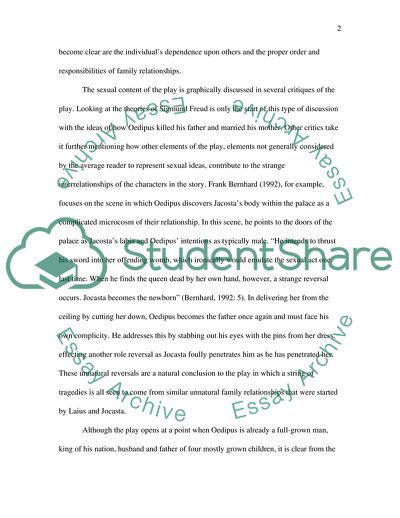Cite this document
(Oedipus the King and its Connection to Modern Life Assignment, n.d.)
Oedipus the King and its Connection to Modern Life Assignment. https://studentshare.org/literature/1746146-oedipus-the-king
Oedipus the King and its Connection to Modern Life Assignment. https://studentshare.org/literature/1746146-oedipus-the-king
(Oedipus the King and Its Connection to Modern Life Assignment)
Oedipus the King and Its Connection to Modern Life Assignment. https://studentshare.org/literature/1746146-oedipus-the-king.
Oedipus the King and Its Connection to Modern Life Assignment. https://studentshare.org/literature/1746146-oedipus-the-king.
“Oedipus the King and Its Connection to Modern Life Assignment”. https://studentshare.org/literature/1746146-oedipus-the-king.


